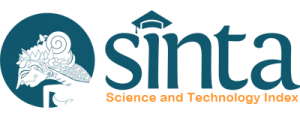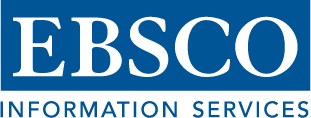Contribution of God’s Servants In Upholding Sound Doctrine in The Church Community Based on Titus 1:5 - 2:10
Abstract
In the current reality of the development of faith and the church, there are challenges in the form of unhealthy teachings that can hinder the growth of true religion. That is why this research aims to analyze and reveal the concept of God’s servants based on Titus 1:5-2:10. Then, show and describe the steps to become a servant of God who contributes to the development of the church and society through sound teachings based on Titus 1:5-2:10. The results of this research are that four factors challenge the church in dealing with heresy. However, this challenge is paradoxical because, on the other hand, within this challenge, there are opportunities for the church, especially for community development. The four factors include, First, Religious Pluralism and Moral Relativism. It is essential to properly understand the moral values taught by the religious scriptures so that they can be the primary key to opening the way for evangelization missions. Second, the influence of media and technology. The presence of social media will become an increasingly important service object for maintaining connections among its people—third, heretical teachings. The church needs to act firmly to fight the practices of heretics who try to distort the truth to suit their wishes. Fourth, Materialism and Worldly Pleasures. No human wealth can buy life or health. Therefore, this “empty space” can provide an opportunity for God's servants, equipped with sound doctrine, to bring people to the needs of eternity rather than mortal.
Keywords
Full Text:
PDFReferences
Afandi, Yahya. “Gereja dan Pengaruh Teknologi Informasi ‘Digital Ecclesiology’.” Fidei: Jurnal Teologi Sistematika dan Praktika 1, no. 2 (December 2018): 270-283. https://doi.org/10.34081/fidei.v1i2.12.
Barnet, Jake. Harta dan Hikmat: Pandangan Alkitab Tentang Kekayaan. Bandung: Yayasan Kalam Hidup, 1987.
Boiliu, Fredik Melkias, Martha Megawati Pasaribu. “Peran Pendidikan Agama Kristen di Gereha Terhadap Pemberdayaan Ekonomi Kreatif Jemaat di Era Digital.” Jurnal Pengabdian Tri Bhakti 2, no. 2 (2020): 118-132. http://journal.unla.ac.id/index.php/tribhakti/article/view/1518.
Camerling, Yosua Feliciano, Mershy Ch. Lauled, Sarah Citra Eunike. “Gereja Bermisi Melalui Media Digital di Era Revolusi Industri 4.0.” VISIO DEI Jurnal Teologi Kristen 2, No. 1 (June 2020): 1-22. https://doi.org/10.35909/visiodei.v2i1.68.
Candland, Christopher. “Faith as Social Capital: Religion and Community Development in Southern Asia.” Social Capital as a Policy Resource 33 (2001): 129-148. https://link.springer.com/chapter/10.1007/978-1- 4757-6531-1_8.
Damazio, Frank. Memimpin dengan Roh. Yogyakarta: Andi Offset, 2004.
Dewi, Rostiani. “Ajaran Pendewasaan Berdasarkan Titus 2:1-10.” Anoteros: Jurnal Teologi 1, no. 1 (2023): 12-23. https://ojs.stt-pontianak.ac.id/index.php/anoteros/article/view/3.
Drew, Clifford J., Michael L. Hardman, John L. Hosp. Penelitian Pendidikan: Merancang dan Melaksaknakan Penelitian pada Bidang Pendidikan. Jakarta: Indeks, 2017.
Goa, Loren. “Pelayanan Pastoral Bagi Sesama yang Membutuhkan.” Sapa: Jurnal Katakteik dan Pastoral 3, no. 1 (2018): 107-125. https://e- journal.stp-ipi.ac.id/index.php/sapa/article/view/50/44.
Guthrie, Donald. The Pastoral Epsitles: An Introduction and Comentary. Grand Rapids, Michigan: William B. Eerdmans Publishing, 1999.
Hariprabowo, Y. “Misi Gereja Di Tengah Pluralitas Agama dan Budaya.” Jurnal Orientasi Baru 18, no. 1 (April 2009): 33-49. https://e- journal.usd.ac.id/index.php/job/article/view/1395.
Hawthorne, Gerald F., Ralph P. Martin, Daniel G. Reid (edistors). Dictionary of Paul And His Letters. Downers Grove, Illinois: Intervarsity Press, 1993.
Jacob, Yessy Kenny, Christopher Pangalila. “Pemaknaan Panggilan Kostor dalam Pelayanan Gereja,” Jurnal Psikologi Humanlight 1, no. 2 (2020): 1-23. https://doi.org/10.51667/jph.v1i2.378.
Jatmiko, Bakhoh, Desi Erlina Zega. “Etika Keuangan Hamba Tuhan: Kajian Eksegetikal Terhadap 1 Timotius 6:3-10.” Integritas: Jurnal Teologi 3, no. 2 (December 2021): 133-147. https://doi.org/10.47628/ijt.v3i2.79.
Juanda, Zevania Venda Andaline. “Menghadapi Ajaran Sesat Studi Jemaat Efesus Menurut 1 Timotius 4:6-16.” Kerusso 4, no. 1 (March 2019): 1-5. https://doi.org/10.33856/kerusso.v4i1.80.
Kasse, Gustaf R. A. “Studi Terhadap Penatalayanan Gereja Berdasarkan Kitab Titus 1:5-16 Dan Implementasinya Bagi Gereja Masa Kini.” Jurnal Rumea 2, no. 2 (2022): 18-27. https://www.jurnal.stakam.ac.id/index.php/Rumea/article/view/101.
Latif, Helen Farida et.al. “Digitalisasi sebagai Fasilitas dan Tantangan Modernisasi Pelayanan Penggembalaan di Era Pasca-Pandemi: Refleksi Teologi Kisah Para Rasul 20:28.” Kharismata: Jurnal Teologi Pantekosta 4, no. 2 (January 2022): 296-311. https://doi.org/10.47167/kharis.v4i2.132.
Leobisa, Jonathan, et.al. “Tantangan Penggunaan Media Sosial di Era Disrupsi dan Peran Pendidikan Etika Kristen.” Altheia: Christian Educator Journal 4, no. 1 (April 2023): 38-48. https://doi.org/10.9744/aletheia.4.1.38-48.
Longman III, Tremper & David E. Garland (General Editors). The Expositor's Bible Commentary: Ephesians-Philemon vol. 12, revised edition. Grand Rapids Michigan: Zondervan, 2006.
Lumintang, Stevri. Theologia Abu-abu: Pluralisme Agama. Malang: Gandum Mas, 2004.
Nazir, Moh. Metode Penelitian. Jakarta: Ghalia Indonesia, 2005.
Ndruru, Beriaman. “Analisa 2 Timotius 4:1-8 Tentang Nasihat Paulus Kepada Timotius dan Implikasinya Bagi Hamba Tuhan.” Jurnal Pendidikan Agama dan Teologi 1, no. 1 (March 2023): 1-10. https://doi.org/10.59581/jpat-widyakarya.v1i1.109.
Palabirin, Berniaty, Daniel Ronda. “Pandangan Alkitab Tentang Praktik Bisnis di Kalangan Hamba Tuhan Penuh Waktu.” Jurnal Jaffray 8, no. 2 (2010): 35-47. http://dx.doi.org/10.25278/jj71.v8i2.45.
Prananto, Joseph Christ Santo. “Kewaspadaan terhadap Guru-guru Palsu Berdasarkan 2 Petrus 2 Sebagai Antisipasi terhadap Penyesatan pada Masa Kini.” Miktab: Jurnal Teologi dan Pelayanan Kristiani 2, no. 2 (December 2022): 201-214. http://dx.doi.org/10.33991/miktab.v2i2.435.
Raco, J. R. Metode Penelitian Kualitatif: Jenis, Karakteristik dan Keunggulannya. Jakarta: PT. Grasindo, 2010.
Rusmanto, Ayub, Bambang Dewandaru. “Pemberdayaan Kaum Awam dalam Pengembangan Pelayanan Gereja untuk Mewartakan Kabar Keselamatan.” Didasko: Jurnal Teologi dan Pendidikan Kristen 2, no. 2 (October 2022): 139-148. https://doi.org/10.52879/didasko.v2i2.50.
Saputra, Jefri Andri dkk. “Penghormatan Pelayan Gereja dalam Konstruksi Teologi Lokal Tradisi Masso’bä’ dan Teks 1 Timotius 5:17-18.” Danum Pambelum: Jurnal Teologi dan Musik Gereja 3, no. 1 (May 2023): 11, https://doi.org/10.54170/dp.v3i1.130.
Sugiyono. Metode Penelitian Pendidikan (Pendekatan Kuantitatif, Kualitatif, dan R&D). Bandung: Alfabeta, 2014.
Sumbung, Grace dkk. “Peran Gereja dalam Peningkatan Ekonomi Masyarakat di Tomohon Sulawesi Utara.” Wacana: Jurnal Sosial dan Humaniora 15, no. 4 (2012): 8-14. https://wacana.ub.ac.id/index.php/wacana/article/view/264.
Suriawan. “Misi Gereja Menghadapi Pluralisme Agama: Antara Tantangan dan Peluang.” Magenang: Jurnal Teologi dan Pendidikan Kristen 4, no. 1 (April 2023): 1-11. https://doi.org/10.51667/mjtpk.v4i1.1304.
Sutanto, Hasan. Hermeneutik: Prinsip dan Metode Penafsiran Alkitab. Malang: Literatur Saat, 2007.
Takaliuang, Morris Phillips. “Ancaman Ajaran Sesat di Lingkungan Kekristenan: Suatu Pelajaran Bagi Gereja-gereja di Indonesia.” Missio Ecclesiae 9, no. 1 (2020): 132-156. https://doi.org/10.52157/me.v9i1.115.
Tambun, Mariduk. “Pendidikan Kualifikasi Dan Fungsi Seorang Penatua: Sejauh Bagaimanakah Para Hamba Tuhan Melakukannya?” Jurnal Excelsior Pendidikan 2, no. 1 (April 2021): 45-62. https://doi.org/10.51730/jep.v2i1.10.
Thomas, Norman E. Teks-teks Klasik tentang Misi dan Kekristenan Sedunia. Jakarta: Gunung Mulia, 2001.
Tridiatno, Yoachim Agus. “Mystical Way of Mother Teresa.” Jurnal Teologi 1, no. 2 (November 2012): 149-154.
Tumbel, Daniel. “Tema Utama Teologi Titus.” Kerusso 2, no. 1 (Maret 2017): 18-33. https://doi.org/10.33856/kerusso.v2i1.36.
Umboh, Sonny Herens. “Model Pembinaan Karakter Pemimpin Menurut Kitab Titus bagi Kaum Muda Gereja Allah Baik Agape Nirwana Surabaya.” Euanggelion 3, no. 1 (2022): 1-19. https://e-journal.staklb- manado.ac.id/index.php/euanggelion/article/view/37.
Waharma. “Karakteristik Seorang Pelayan Tuhan Berdasarkan 1 Timotius 3:1-7.” Manna Rafflesia 4, no. 1 (October 2017): 37-56. https://doi.org/10.38091/man_raf.v4i1.80.
Williams, R. H. Stewards, Prophets, Keepers of the Word: Leadership in the Early Church. Peabody, MA: Hendrickson, 2006.
Yarbrough, Robert W. The Letters To Timothy and Titus. Grand Rapids, Michigan: William B. Eerdmans, 2018.
DOI: http://dx.doi.org/10.25278/jj.v21i2.885
viewed = 0 times



















